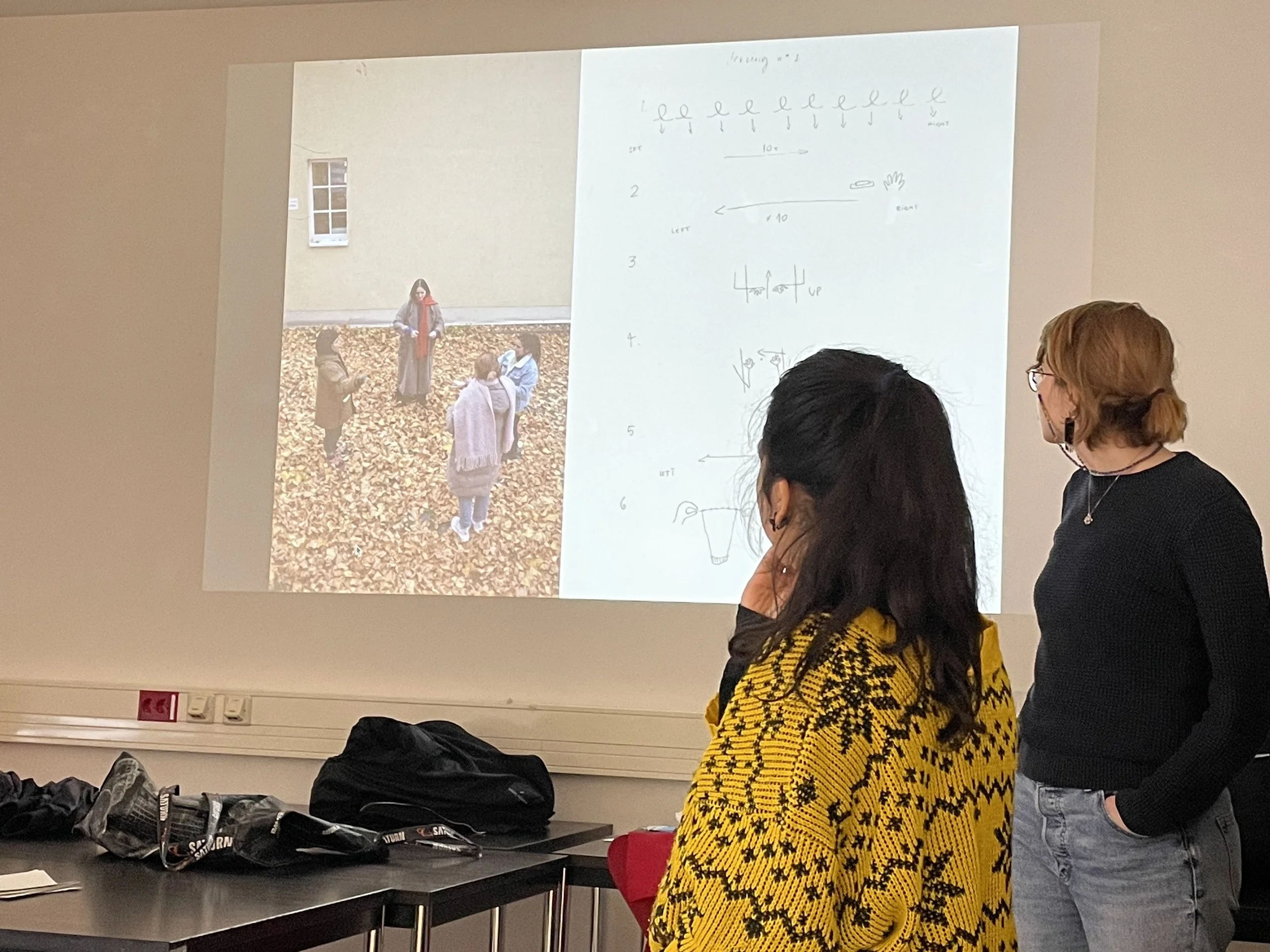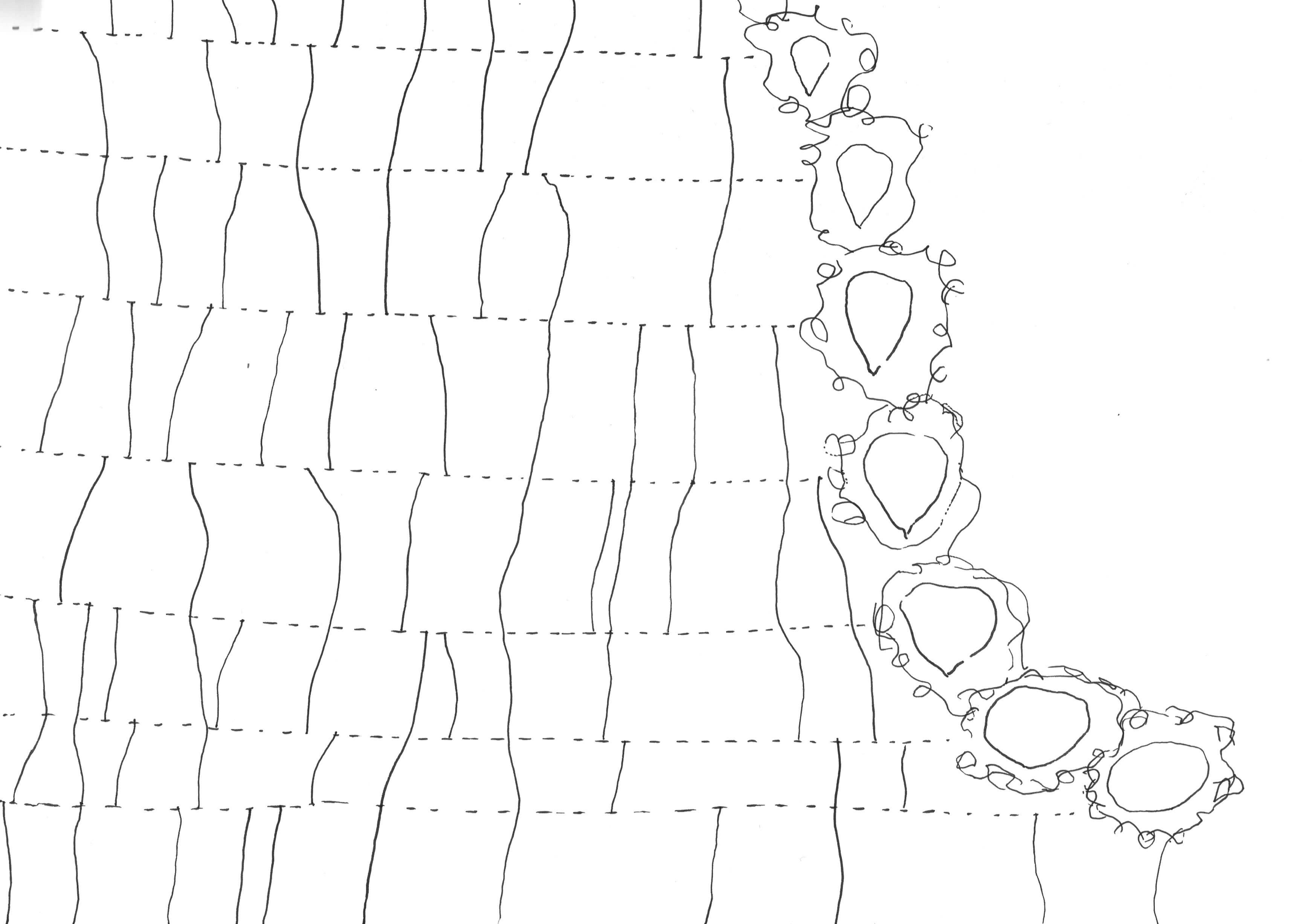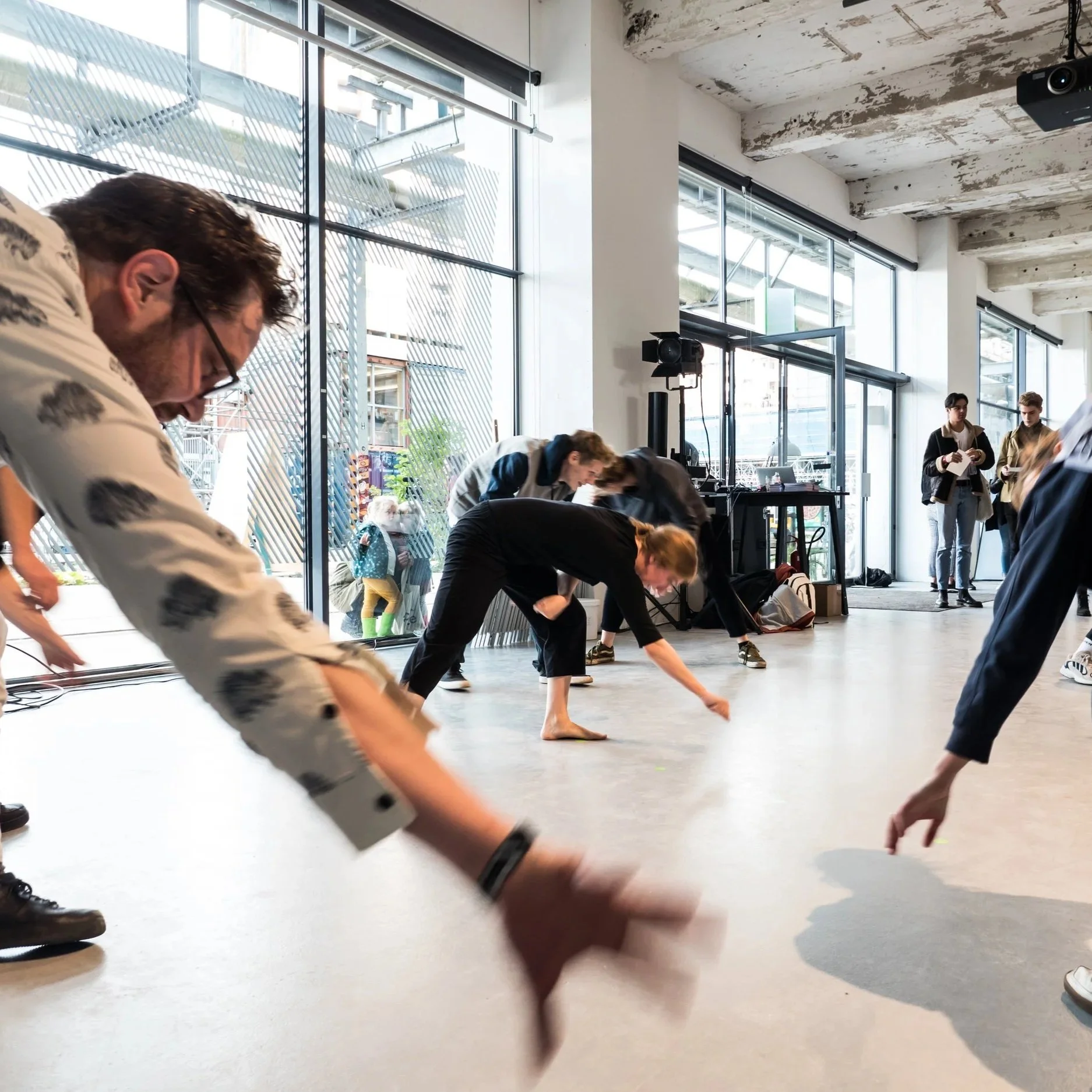An Other Self – Embodiment as Practice Beyond Relational Spheres
why this workshop
In a world marked by capitalist exhaustion and exploitative systems of division, navigating complex relational spheres and power dynamics with nuance and awareness is essential. The workshop invites participants to investigate their own positionality and rethink responsibility within their fields of engagement and practice.
By working with embodied and performative methods, we will explore how to cultivate awareness and movement as critical tools, and how the body, as both material and medium, can open pathways of resistance and relationality.
How can we expose, confront, and subvert aspects of human-made infrastructures of alienation—beyond what is material or visible?
workshop overview
An Other Self offers an embodied and performative approach to investigating the complexity of human-made systems and dimensions of relations, that are often rendered invisible. Through the lens of kinaesthetic empathy, we will use the body as medium for research, action and reflection.
In building a collective and safe space, we will examine how the body mediates between diametric spaces, such as the political and personal, or the collective and individual. Participants will engage in guided movement scores, awareness exercises, and group investigations using sound, gesture, and spatial composition. These explorations will serve as forms of embodied research – a way to notice, map, and reframe social and material relations through the body.
The course is experimental and experiential. Participants are invited to move beyond their comfort zones through carefully guided explorations involving movement, sound, touch, and listening, used as both tools and materials for designing practice-based interventions. Moments of reflection, mapping, writing, and collective dialogue will accompany the physical work to articulate how embodied experience informs theory and creative practice.
The workshop is both a learning experience and a call to action for art, design and transdisciplinary practitioners to engage deeply with the complexities of the world around them. It cultivates critical reflection, empathy, and embodied awareness as integral aspects of creative practices.
fields of engagement
The workshop connects theory and practice through the following interrelated fields:
Material Cultures, Design- and Material politics
Infrastructures of (Re-)Production and Labour
Gendered Spaces & Performativity
Embodiment of Theory
The framework can also be applied to participants’ individual research trajectories, making it suitable as a preparatory format for graduation or project-based studies.
learning objectives
Participants will:
Experiment with somatic and performative methodologies to rethink interrelations within selected case studies.
Cultivate a reflexive awareness of how personal, social, and political dynamics are embodied in everyday life.
Practice grasping complexity through embodied understanding, challenging dualisms of Western thought such as body vs. mind, human vs. non-human, self vs. other.
Investigate reciprocity and interdependence as embodied practices, learning how their political and aesthetic dimensions can foster empathy and responsibility within shared systems of relation.
Develop and analyse their creative practice through performative inquiry.
Engage in tools of documentation (such as film, audio, mapping, scripting) to shape embodied outcomes.
outcome
The workshop concludes with performative interventions – immersive and participatory re-enactments or embodied reflections that engage others through choreography, sound, and set design.
Depending on the facility context, outcomes can take the form of a collective performance, an open studio session, or an exhibition-installation integrating documentation materials (film, sound, mapping, and text).
Participants leave with both experiential and material outcomes that can feed into ongoing artistic or research projects.
practical information
Duration: Flexible (3–5 days, based previous experiences; can be adjusted depending on context and scope)
Requirements: A spacious indoor area for movement, projector and speakers. Workshop materials such as paper, markers and pens, camera/smartphone, strings, tape, computer (can be brought by participants individually).
Suitable for: Art, design, and performance students; interdisciplinary researchers of social sciences and humanities.
Accessibility note: Exercises are adaptable to participants with different physical or neurodiverse abilities.
The workshop can be conducted in English and German
theoretical ressources
The conceptual framework draws on feminist, somatic, and material-discursive theory, including:
Ahmed, Sara (2000). Strange Encounters: Embodied Others in Post-Coloniality. Routledge.
Batacharya, Sheila & Wong, Yuk-Lin Renita (eds.) (2018). Sharing Breath – Embodied Learning and Decolonization. AU Press.
Bennett, Jane (2010). Vibrant Matter – A Political Ecology of Things. Duke University Press.
Easterling, Keller (2021). Medium Design: Knowing How to Work on the World. Verso.
Federici, Silvia (2020). Beyond the Periphery of the Skin - Rethinking, Remaking, and Reclaiming the Body in Contemporary Capitalism. PM Press.
Johnson, Rae (2017). Embodied Social Justice. Routledge.
Povinelli, Elizabeth A. (2018). Mother Earth: Public Sphere, Biosphere, Colonial Sphere. e-flux, issue #92. [online] URL: http://worker01.e-flux.com/pdf/article_204673.pdf
Tsing, Anna L. (2015). The Mushroom at the End of the World: On the Possibility of Life in Capitalist Ruins. Princeton University Press
Vergés, Françoise (2021): On the politics of Extraction, Exhaustion and Suffocation. [online] URL: https://archive-2014-2024.internationaleonline.org/research/politics_of_life_and_death/195_on_the_politics_of_extraction_exhaustion_and_suffocation/
contact
For inquiries, collaborations, or workshop requests:
mail[at]vivientauchmann.com






